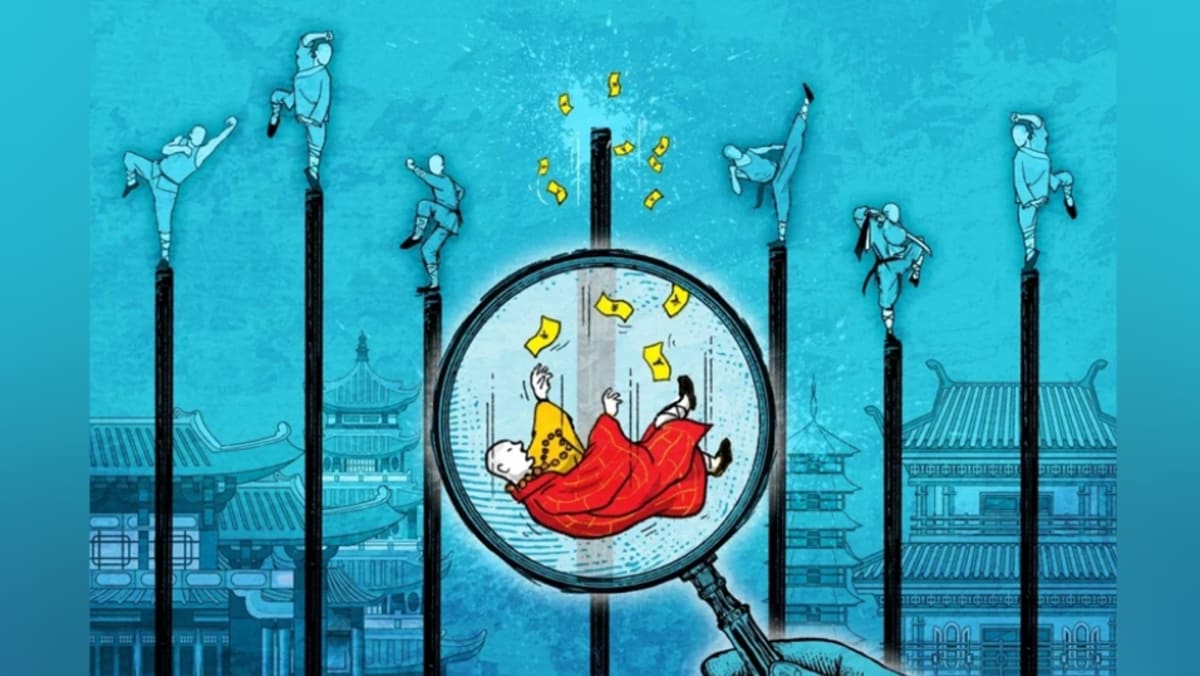Some of the most criticised aspects of commercialisation at the temple – such as monks trying to sell visitors expensive incense and bracelets or encouraging them to make large donations in return for blessings – were conspicuously absent.
While there appeared to be plenty of tourists at the temple, locals said there were fewer visitors than usual during the peak summer tourism season and there had been a noticeable drop in numbers since the investigation into Shi was made public.
But a former monk at the temple – who left some time ago because it was “too messy” – said the latest allegations against Shi were unlikely to have much of an impact.
“This whole thing with Yongxin – whether he was actually involved in those wrongdoings – it won’t affect business at all,” the monk said. “Tourists will still come to Shaolin Temple as usual.”
CHANGE IN DIRECTION?
In recent decades, a “temple economy” has developed in Dengfeng around the Shaolin culture – from martial arts schools to businesses selling kung fu gear and souvenirs. Tens of thousands of students attend the schools and summer kung fu camps regularly attract both Chinese and foreign enthusiasts.
But Shaolin is not the only temple that has seen commercial success in recent years as increasing interest in spirituality – particularly among younger Chinese – inspires more trips to places of worship and fuels a crossover with consumer culture.
Visitors flock to Buddhist temples, Taoist shrines, their associated vegetarian restaurants and gift shops, where blessed prayer beads and prayer pouches fly off the shelves. There has also been a surge of interest in fortune-telling and meditation experiences.
China’s temple economy was worth 80 billion to 90 billion yuan (US$11.1 billion to US$12.5 billion) in 2023, according to consulting agency Meritco Group. It estimated market value could exceed 100 billion yuan by the end of this year.
The consultancy said 25 million people visited the popular sites of Shaolin, Lingyin Temple in Hangzhou, Zhejiang province and Yonghe Temple – also known as Lama Temple – in Beijing in 2023. They generated some 1.1 billion yuan in annual revenue for the three temples that year.
Debates over the commercialisation of temples have simmered for years in China. Some argue that they are sacred spaces for spiritual practice and should not be treated as marketplaces. Others say commercial activities are acceptable to help make temples self-sufficient, as long as they do not cross certain lines, to preserve culture, and that they are a response to shifting economic realities.
Meng Liang, chair of the Mencius Foundation, said the investigation into Shi could prompt the government to overhaul how religious institutions were managed.
He said reforms could include temples being banned from having direct involvement in property auctions, limits placed on their use of trademarks, and for them to have to contribute income from monastic performances to public welfare funds.
That would build on state guidelines issued in 2017 aimed at strengthening regulation and preventing corruption. Those guidelines required temples to “maintain a non-profit nature”, improve financial oversight and to prevent commercial capital from interfering with the practice of Buddhism and Taoism – two of China’s five state-sanctioned religions, along with Islam, Catholicism and Protestantism.
